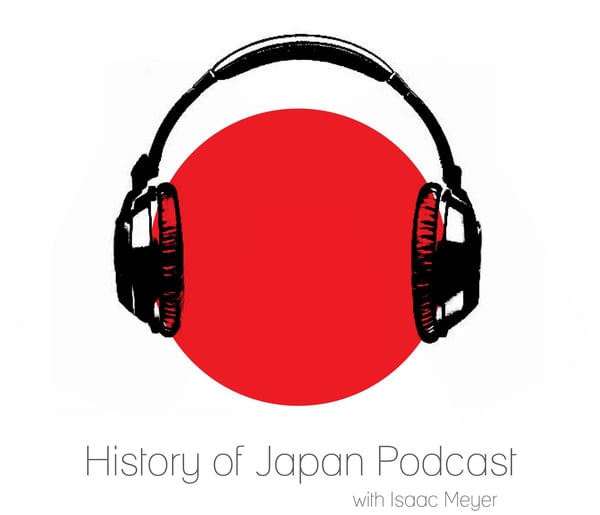Episode 70 - The Tokyo Rose
History of Japan
Isaac Meyer
4.8 • 744 Ratings
🗓️ 27 September 2014
⏱️ 23 minutes
🧾️ Download transcript
Summary
Note: This is a revised version to fix a technical issue with the original release
This week, we're going to talk about the life of Iva Toguri, the woman most associated with the infamous (and legendary) role of the Tokyo Rose. Labelled as a traitor for her actions during the war, Toguri fought hard for her citizenship and her reputation, and was rewarded for her tenacity decades after the fact.
Transcript
Click on a timestamp to play from that location
| 0:00.0 | Hello and welcome to the History of Japan podcast. Episode 70, The Tokyo Rows. |
| 0:23.5 | This week, it's time to talk about one of the most famous treason cases in American history. |
| 0:29.5 | An American citizen who worked for Japan during World War II, unwillingly it must be said, |
| 0:35.1 | and whose desperate attempt to put food on the table during those harsh years |
| 0:38.6 | ruined a good portion of her life. It's time to talk about the Tokyo Rose. There's only one |
| 0:45.5 | problem, though. There's no such person. The Tokyo Rose was a nickname used for the female |
| 0:50.6 | announcers for an English language program called Zero Hour, which was produced |
| 0:55.5 | during World War II by the Japan Broadcasting Association, or Nippon Hulsalkai, the NHK. |
| 1:02.4 | In fact, none of the female announcers for Zero Hour ever even referred to themselves as Tokyo Rose. |
| 1:09.3 | The nickname, however, is most often identified with a single woman who's going to be the |
| 1:13.6 | focus of much of this week's podcast, Ivo Toguri, referred to in Japanese, by the name |
| 1:19.4 | Toguri Ikukol. |
| 1:21.7 | Ivo Toguri was born in Los Angeles, California, ironically enough, on July 4th, 1916. |
| 1:30.2 | Being born in the U.S., she was automatically made a U.S. citizen. Her parents were Japanese nationals, but if you're born in |
| 1:35.3 | the United States, then you are automatically eligible for U.S. citizenship. |
| 1:40.3 | Her father, Toburi June, came to the U.S. in 1890. |
| 1:49.3 | After he earned enough money to bring her, June arranged for his wife Fumi to join him. |
| 1:55.6 | Their daughter attended a public high school in Los Angeles and eventually attended the University of California, Los Angeles, and received a degree in zoology. |
| 2:03.9 | After graduation, she returned home to live with her parents and work in the family grocery store in LA. Her men on, she |
| 2:09.6 | would likely have lived a fairly normal life, if not for an odd twist of fate. When she |
| 2:15.0 | was 25 years old, in July, 1941, she was sent back to Japan to care for a sickly aunt for what was supposed to be only a few months. |
| 2:25.3 | As we've been recently discussing, while she was sailing across the Pacific, the Japanese government had already wrapped up conferences to reaffirm its willingness to resist the United |
... |
Transcript will be available on the free plan in -3839 days. Upgrade to see the full transcript now.
Disclaimer: The podcast and artwork embedded on this page are from Isaac Meyer, and are the property of its owner and not affiliated with or endorsed by Tapesearch.
Generated transcripts are the property of Isaac Meyer and are distributed freely under the Fair Use doctrine. Transcripts generated by Tapesearch are not guaranteed to be accurate.
Copyright © Tapesearch 2025.

